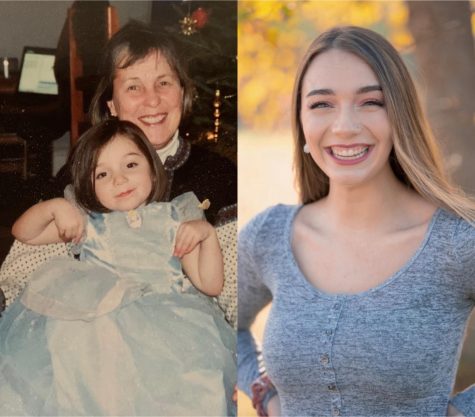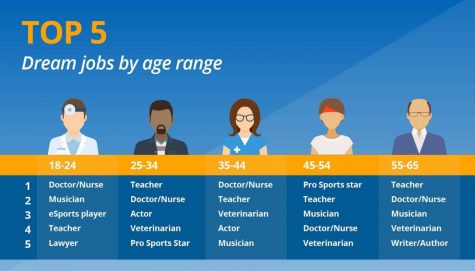What was Your Childhood Dream Job?
January 20, 2020
“If I asked your five-year-old self what you wanted to be when you grow up, how would you respond?” This is the question that we recently asked some teachers and students at Ipswich High School, in aims to find a possible correlation between their childhood dreams and current career path or intentions. Most interviewees answered with something rather ridiculous and unachievable, like Bailey Amazeen’s first goal to be a princess. Another trend within responses was typical occupations that kids are exposed to early on in their lives. According to The Balance Careers, some of the most common childhood dream jobs include doctor, vet, teacher, artist, writer, athlete, and dancer.
This last occupation was prevalent for two of the students we interviewed: Casey Nordberg and Grace Campanello. Casey said that she wanted to be a ballerina and an acrobat when she was young. However, she admitted that she lacked the natural flexibility to undertake the activity. “I didn’t even take a gymnastics class when I was little. I don’t know what I was thinking,” Casey said. She ultimately moved on from this idea and now wants to pursue child psychology and counseling. Grace’s response was a little different―at one point, she aspired to be a “sky dancer,” a toy doll that spins in the air. Once she came to her senses as a teenager, she decided that nursing could be an interesting career path for herself. Most children have unrealistic ambitions, but their goals are soon impacted by the people and society around them. “Fuelled by innocence and optimism in the initial phase of our lives, our childhood years are filled with aspirations of what we might become” (TollFreeForwarding.com). According to the same source, 76% of people don’t end up with the career they originally dreamed of.
When answering the question, “As a five year old, what did you want to be when you grow up?” IHS English teacher Tim Sidmore responded with “the Hulk.” Up until second grade, his dream was, in fact, to become the green superhero. He later lost interest but decided to save the world in a different way: electrical engineering. In middle school, Sidmore was greatly influenced by his neighbor and would often practice soldering with him (joining metal objects by melting). Unfortunately, this career wasn’t the best fit for him, as there was too much math involved.
A study by the National Center for Education Statistics states that 30% of undergraduates changed their major at least once between 2012 and 2014. Mr. Sidmore was also asked if he had ever changed his major in college. He nodded, saying, “I went into college as a history major,” which he pursued for two years, in addition to Spanish with a minor in language. Later, he changed his major to English because he wasn’t sure what to do with his current education, and thought he could seek a career in either journalism or writing. Although his parents were supportive of him, his father told him that he couldn’t be a “struggling writer for the next ten years under his roof,” so he chose to study education in addition to English.
How much influence do parents have on their child’s career choices? When asked this question, Mr. Sidmore explained he had a traditional, religious upbringing, and his parents taught him that going to college was a privilege. Therefore, he followed the path that they encouraged him to because it was practical. His parents also told him to “work harder than everyone else and use money wisely.” It may have been a difficult decision at the time, but Mr. Sidmore is glad that he chose the stable career he did and he is proud of his choice.
Although many people will take some time to figure out their true passions and change their majors many times, Mrs. Chandler is an exception. The high school science teacher grew up wanting to be a marine biologist, and being raised on the coast played a major role in her love for science. Although her deep passion for marine biology did not come from her parents, as they were both lawyers, Mrs. Chandler told us that they were always very supportive. Her mom would sign her up for summer camps so she could explore her dream before devoting her life to it. After college, Mrs. Chandler worked in the field with genetics and marine biology, and later became a teacher.
Our research was conducted with the aim of finding a possible correlation between childhood and current dreams and career choices. With most participants, it seemed as if there was no connection, and their unrealistic, innocent aspirations dissolved into something more serious and suited towards their personality. However, occasionally a person has a true calling and sticks with it from their earliest years all the way to adulthood.


